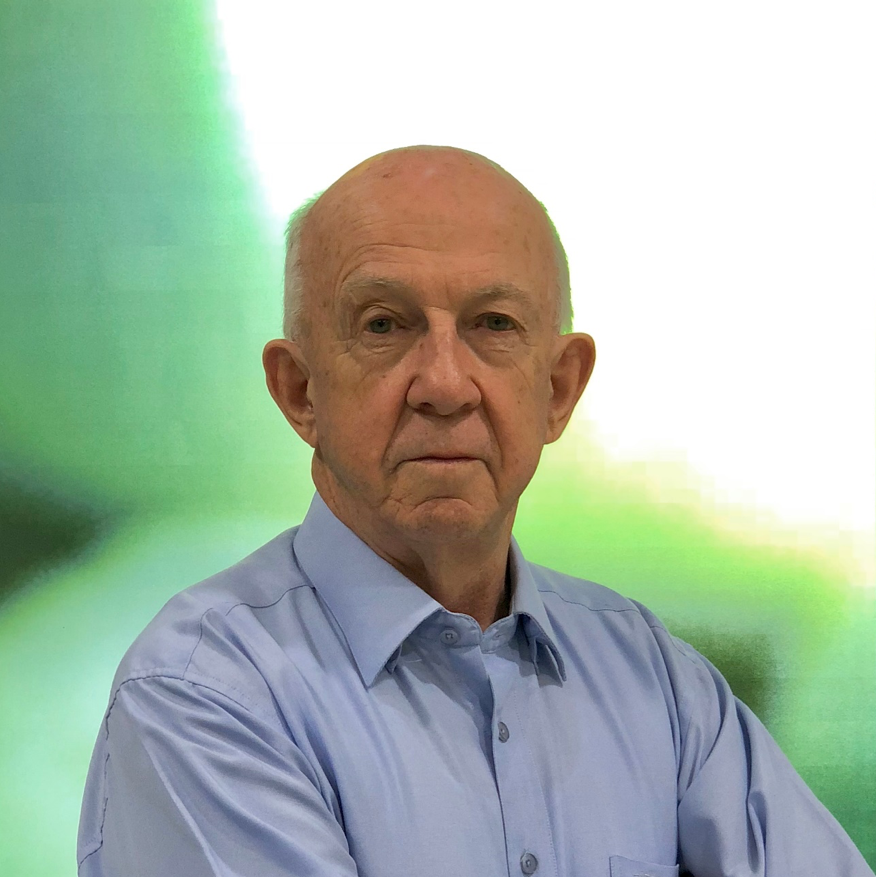 Professor Martin Lavin
Professor Martin Lavin
Approach to a clinical trial for ataxia-telangiectasia
Bio: Professor Lavin is a world leader on research into the human genetic disorder ataxia-telangiectasia (A-T) focusing on both basic research and clinical involvement as a member of the National A-T Clinic which combines management and research for patients.Over the years he has made very significant contributions to this field of research including part of a consortium that cloned the ATM gene; identified ATM substrates and described functional roles for phosphorylations involved; elucidated mechanism of ATM activation in response to oxidative stress; described importance of oxidative stress in lung disease model, generated Atm-mutant mouse and rat models as well as investigate the role of DNA damage and oxidative stress in this disorder.
Overview: Ataxia-telangiectasia (A-T) is a multisystem disease that affects the brain, lungs, liver, immune system and is also characterised by a predisposition to haematological malignancies. Patients with A-T are wheelchair bound by the end of the first decade and life expectancy is ~25 years, with progressive cerebellar ataxia- related lung disease (40%) and cancer (30%), accounting for most mortality. At present there is no effective therapy for this disorder, only treating the symptoms (immunodeficiency) or palliative care, so being able to prevent or slow the progress of this disorder will have a major impact on the health and quality of life of patients and their families. The basis for this study focuses on a combination of increased susceptibility to oxidative stress in A- T, abnormalities in energy metabolism and our Preliminary data that provide evidence for defective ER- mitochondrial interaction. We have shown in our Preliminary data that heptanoate (a metabolite of the 7 carbon heptanoic acid triglyceride, triheptanoin) rescues Ca2+ homeostasis and cell killing after glucose deprivation in cells from patients with A-T. This compound has been employed effectively in clinical trials with patients with glucose transporter deficiency, epilepsy, episodic ataxia, and long-chain fatty acid oxidation defects. What is novel in our findings is that heptanoate not only replenishes TCA cycle intermediates (acetyl CoA and succinyl CoA) as demonstrated previously, but by improving mitochondrial function in this way it is responsible for increasing Ca2+ transfer between ER and mitochondria, enhancing mitochondrial function further. These results will be presented as a forerunner to a clinical trial.
 Ms Tejasri Yarlagadda
Ms Tejasri Yarlagadda
The Interactions between Probiotic Bacteria and Respiratory Viruses within the Epithelium of the Upper Respiratory Tract
Bio: Tejasri Yarlagadda studied a Bachelor of Biomedical Sciences with Honours at Queensland University of Technology (QUT). During this time, she discovered her passion for research and is now pursuing a PhD, as part of a collaborative project between the Respiratory Virology Research Group at QUT and the Cervin Group at the University of Queensland.
Overview: Otitis media (OM) in children and rhinosinusitis (RS) in adults are leading causes of healthcare visitations therefore, they have a significant socioeconomic impact. Current treatments are largely focused on antibiotics, which are not effective in treating chronic subtypes of these diseases. Therefore, alternative treatments are required. Limited studies using nasal administration of probiotic bacteria have demonstrated efficacy in preventing bacterial otopathogen colonisation of the upper respiratory tract, thereby reducing the incidence of OM and RS in at-risk individuals. Probiotics therefore represent a feasible treatment option. However, as chronic OM and RS involve an innate immune hyperinflammatory response in the nasopharynx due to a viral upper respiratory tract infections it is important to understand the immune response that would be elicited by these probiotics alone and in the presence of respiratory viruses. Therefore, the focus of this research will be the characterisation of the innate immune response to therapeutic probiotics with and without co-exposure to common respiratory viruses using an in vitro model of well-differentiated nasal epithelial cells. The outcome will be a thorough understanding of how these microbes interact within the nasal epithelium and whether probiotics are protective against viral infections, or if their beneficial action may be inhibited by viral infections.
About UQCCR Seminar Series
UQCCR Seminar Series
The UQ Centre of Clinical Research (UQCCR) Seminars are held fortnightly on Wednesdays from 12 pm - 1 pm (except during school holidays) currently on Zoom. The series features topics in multiple research fields, presented by invited international, interstate and local researchers.
Venue
https://uqz.zoom.us/j/129947296
